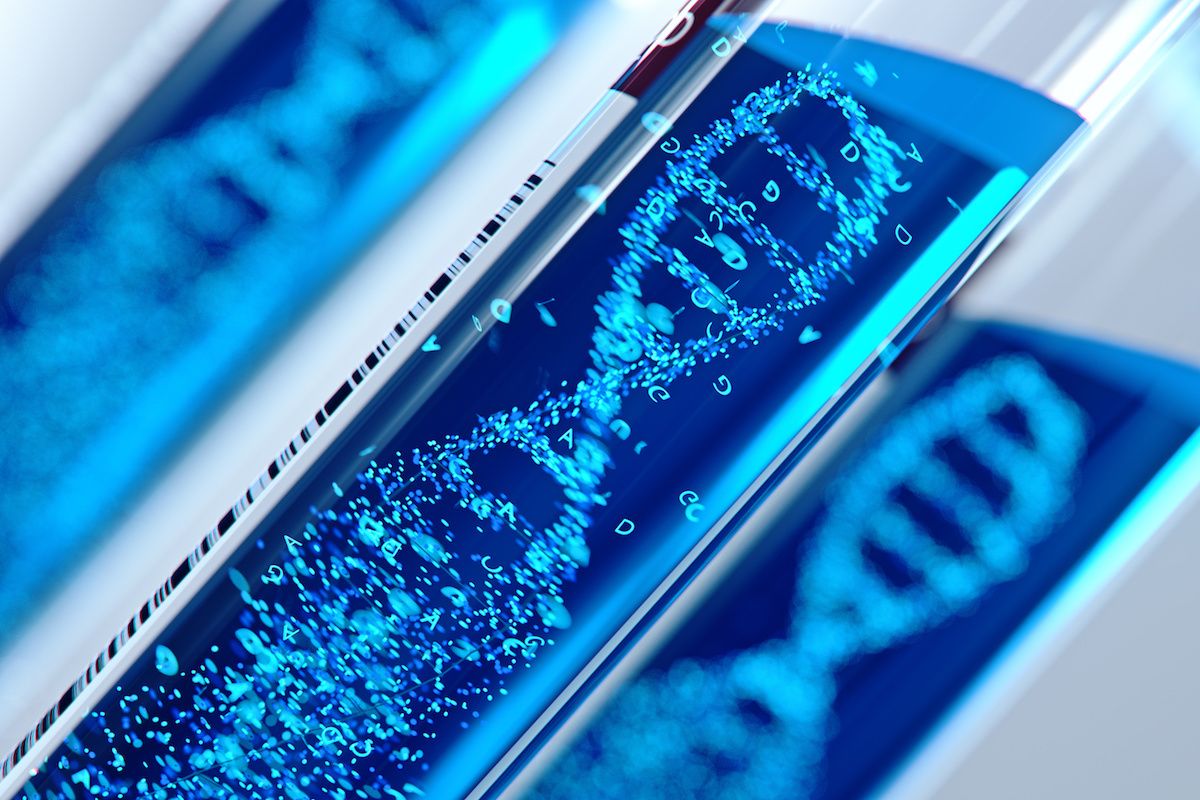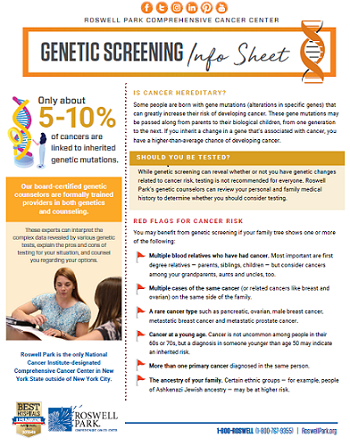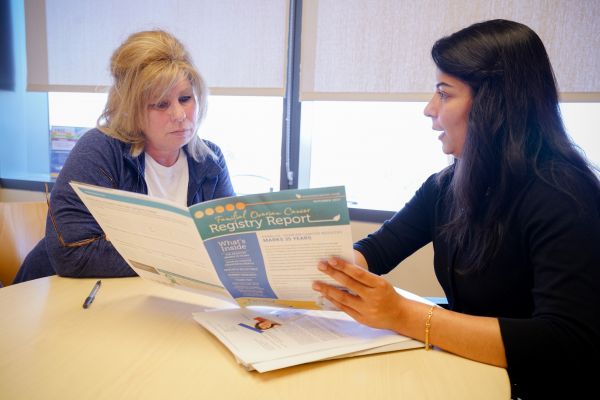Just about everyone is touched by cancer in some way, and one case of cancer is more than enough for any family to cope with.
But when the second diagnosis hits, or the third, or cancer seems to appear in every generation, the inevitable question arises: “Does cancer run in our family?”
Genetic Screening May Provide Answers
Genetic screening is a process that involves genetic counseling to examine your personal and family cancer history and genetic testing of a blood or saliva sample to analyze your DNA. The testing looks for changes (called mutations) in specific genes — ones that we know play a role in the development of certain cancer types. The results of genetic testing can help your physician estimate your risk for developing cancer and determine your options for reducing and managing that risk.
Genetic testing is not recommended for everyone because the overwhelming majority of cancers are sporadic and random, or caused by multiple factors, such as aging and environmental exposures, explains clinical genetic counselor Katherine Latina, MS, CGC. “Only a small percentage of all cancers — about 5 to 10% — are caused by a gene mutation that can be passed on from generation to generation, but it’s important to learn whether the cancer cases in your family are among them.”
Latest Advances Reveal New Information
Our understanding of the genetic impact on cancer risk continues to evolve rapidly, and scientific advances in the field have led to significant changes in genetic screening for cancer risk in terms of what we test for, whom we test and how we test. These include:
- Discovery of new abnormal genes that affect cancer risk.
- Improved testing technology. Today’s multi-gene tests can analyze several genes at the same time and with far greater sensitivity, identifying genetic mutations that may have been missed in the past.
- New clues to inherited cancer risk. The criteria for considering genetic screening have expanded to include any incidence of these rare cancer types — pancreatic, ovarian, male breast cancer, metastatic breast cancer and metastatic prostate cancer — in your personal or family history.
- Looking beyond your immediate family. When documenting your family’s cancer history, include the cancers that occur in relatives such as your grandparents and aunts and uncles, in addition to those among your first-degree relatives (parents, siblings, children).
If you’ve had genetic testing in the past — especially if it was more than five to seven years ago — experts suggest you talk to a genetic counselor to learn whether you should consider testing again with the newer testing panels, or if updates to your personal or family history impact your risk.
Have You Worked with a Clinical Genetics Counselor?
If a clinical genetics counselor at Roswell Park has helped you and your family better understand and manage your cancer risk, please consider nominating that person for the 2020 Heart of Genetic Counseling Award, presented by the National Society of Genetic Counselors. Deadline is September 25, 2020.
What About Home Tests?
While learning more about your genealogy through test kits like AncestryDNA and 23andMe can be fun, Latina cautions that these direct-to-consumer genetic tests are not the same as those done through a healthcare professional when it comes to cancer-associated genes like BRCA. “These tests are not as accurate and comprehensive,” she says. “They cannot confirm — nor rule out — a possible inherited cancer condition in your family. For example, these home tests typically look at only three specific BRCA gene mutations out of the thousands that have been identified so far. While these three mutations are the most common among the Ashkenazi Jewish population, if you’re not Jewish, the testing isn’t very helpful.”
Your First Step — Learn Your Family History
You’ll probably need to talk to your relatives about your family’s health history and ask questions about each cancer case, such as: What was the specific cancer type? At what age was the person diagnosed? As you fill in the details of your family tree — including your grandparents, parents, siblings, children and aunts and uncles — look for any of these red flags:
- A rare cancer type, such as pancreatic, ovarian, male breast cancer, metastatic breast cancer, metastatic prostate cancer or high Gleason score prostate cancer
- Cancer at a young age (typically under age 50)
- Multiple cases of the same cancer (or related cancers, such as breast and ovarian) on the same side of the family
- More than one primary cancer diagnosis in the same person
- Ashkenazi Jewish ancestry
Report this family history to your healthcare provider, who can help determine if you are a candidate for genetic testing. Or call 1-800-ROSWELL (1-800-767-9355). A cancer information specialist will complete a brief questionnaire with you over the phone to be reviewed by one of our genetic counselors.
Learn more about Genetic Screening at Roswell Park.




